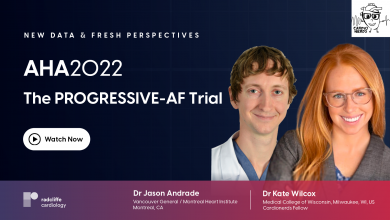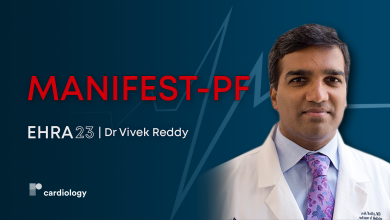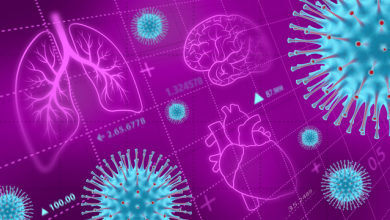Search results
Author(s):
Jason G Andrade
,
Kate Wilcox
Added:
1 year ago
AHA 22 - Dr Kate Wilcox, CardioNerds Academic Fellow (Medical College of Wisconsin, US) joins us in this collaboration between the @CardioNerds and Radcliffe Cardiology to interview Dr Jason Andrade (Vancouver General/Montreal Heart Institute, CA), investigator of the late-breaking PROGRESSIVE-AF trial (NCT05514860).
The aim of PROGRESSIVE-AF is to assess if the initial treatment choice,…
View more
Author(s):
Vivek Reddy
Added:
1 year ago
EHRA 2023 — Join us as we dive into the latest research with investigator, Dr Vivek Reddy (Mount Sinai Hospital, New York, NY, US). He discusses the findings from the MANIFEST-PF registry, adding insights to the evolving landscape of pulsed-field ablation.
The trial studied the use of the Pentaspline PFA Catheter in patients with paroxysmal or persistent atrial fibrillation in order to…
View more
Author(s):
Todd Rudo
Added:
3 years ago
Atrial fibrillation (AF) is the most common arrhythmia encountered in clinical practice, with a prevalence that substantially increases with age. Both the loss of atrial mechanical function and a rapid, irregular ventricular response contribute to potentially significant symptoms, including palpitations, fatigue, chest discomfort, light headedness or syncope. Additionally, AF is associated with a…
View more
Author(s):
Antoni Martínez-Rubio
,
Soledad Ascoeta
,
Fadwa Taibi
,
et al
Added:
3 years ago
In the last months of 2019 and the beginning of 2020, a novel disease appeared, caused by severe acute respiratory syndrome coronavirus 2 (SARS-CoV-2), a very contagious virus, which causes coronavirus disease 2019 (COVID-19). The clinical manifestations of this virus in humans vary widely from asymptomatic to severe, with diverse symptomatology and even death. The substantial transmission from…
View more
Author(s):
Richard Schilling
Added:
3 years ago
Atrial fibrillation (AF) is a supraventricular arrhythmia associated with an increased risk of stroke, heart failure and all-cause mortality.1 Sinus rhythm control and heart rate control are two commonly used strategies to manage patients with AF, alongside the use of anticoagulants for prevention of stroke. Rhythm control with antiarrhythmic drugs (AADs) has similar survival benefits to rate…
View more
Author(s):
Maurizio Gasparini
,
Alessio Cappelleri
,
Paola Galimberti
,
et al
Added:
3 years ago
Cardiac resynchronisation therapy (CRT) is an important device-based, non-pharmacological approach that has been shown to improve the outcome in selected patients with chronic heart failure (HF). Large randomised trials have clearly demonstrated that CRT improves left ventricular (LV) function and reduces both morbidity and mortality rates.1–5 Until a few years ago, CRT was indicated in patients…
View more
Author(s):
Dipen Shah
Added:
3 years ago
Since the first description of catheter ablation for focally initiated atrial fibrillation and focal atrial fibrillation in 1995, the popularity of this catheter intervention has grown practically exponentially and the ablation strategy underlying the intervention has evolved considerably. From ‘point’ ablation within the pulmonary venous vasculature,1 ablation has progressed through circular…
View more
Author(s):
Alberto Lorenzatti
,
Maria Luz Servato
Added:
3 years ago
Coronary artery disease (CAD) is the leading cause of death in most countries. Compelling evidence from epidemiological, genetic and clinical studies as well as experiments in animal models has unquestionably established that elevated concentrations of cholesterol (mainly transported by LDL particles) promote atherosclerotic lesions.1 Although statin-based lipid-lowering therapies have been shown…
View more
Drug–Device Interactions
Author(s):
Etienne Aliot
,
Josep Brugada
Added:
3 years ago
Article
Author(s):
Alberto Lorenzatti
Added:
2 years ago














